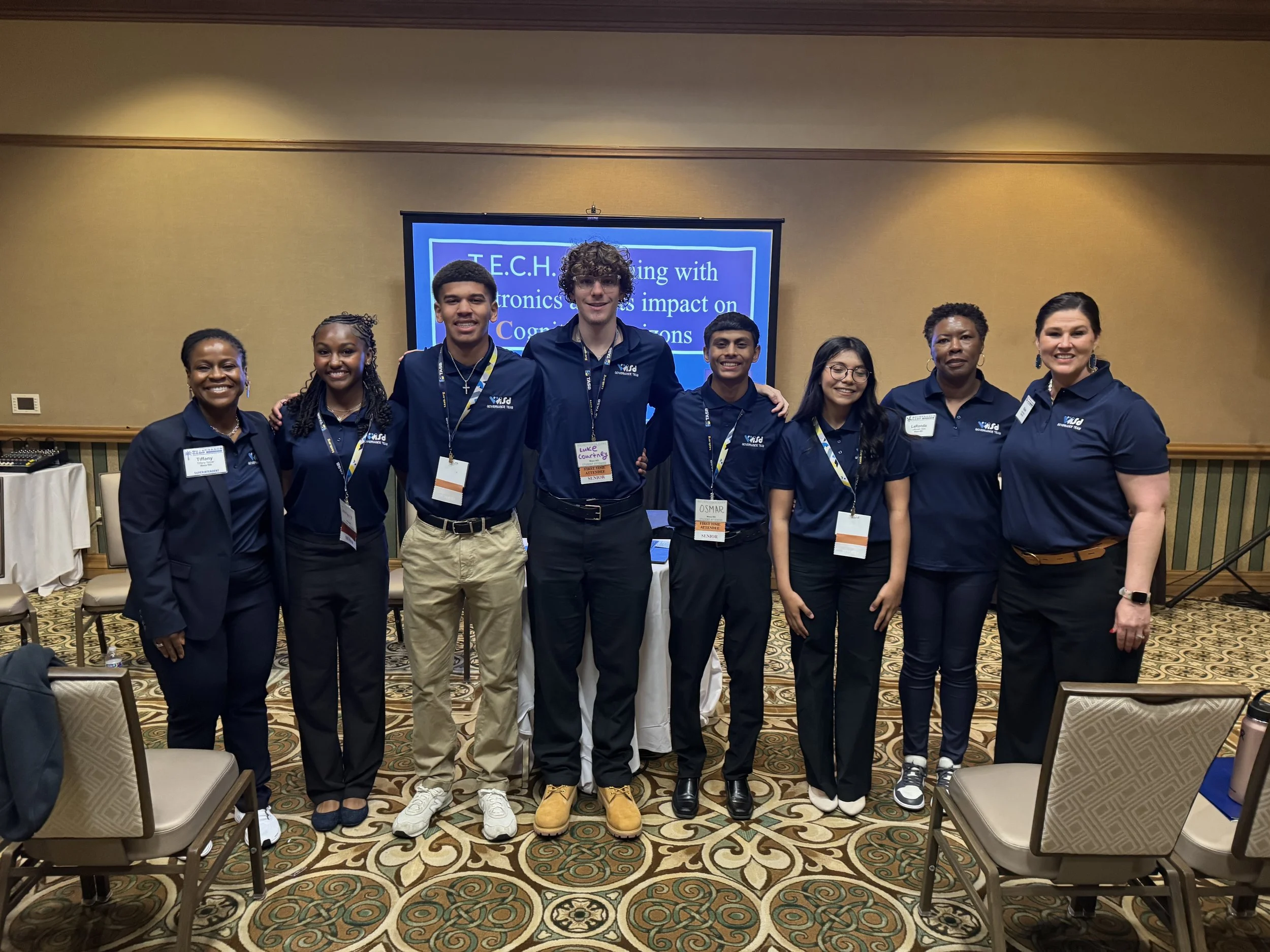Superintendent Year 3 (Student Voice)
As we wrap up spring break, I find myself feeling encouraged. But I’ll be honest—in full transparency, I’ve also felt some discouragement lately. Not about anything within my district, job, board, or staff, but by what’s being said and done against public education at the state and federal levels. When I chose to pursue this profession, I knew it was more than a career—it was a calling to serve. While there are hard days, I am confident this is where I’m supposed to be because we are changing lives, communities, and generations.
Right before spring break, I had the humbling opportunity to attend a conference with some of my seniors. These incredible students spoke to board members and educators from across the state of Texas. I was so proud of them. Speaking in front of adults is difficult as an adult—but for students, it takes an extra level of courage to share their perspectives and experiences.
During their session, T.E.C.H. Teaching with Electronics and its impact on Cognitive Horizons, I was blown away by their observations, insights, and wisdom. The audience was just as impressed—they asked so many questions afterward and even requested their slide deck. Listening to my students challenged me in the best way, and I immediately texted my team: “We have work to do.” I share this because I believe that, as leaders, educators, and professionals (inside and outside of education), we often miss opportunities to truly capture student voice. I remind our leadership team and principals regularly: We are here to serve—not only our faculty and staff, but our students. Every decision, every process we put in place must always circle back to them.
Lately, I’ve been reflecting on the voices I hear the loudest—leaders, politicians, and others—and I wonder: Have they taken the time to think about the end user? Have they truly considered our children? As superintendent, I’ve always had a Superintendent Advisory Council. These meetings are some of the highlights of my work and my days. While I often bring topics for discussion, my students always have something more to contribute—when we let them. Over the years, they’ve raised topics ranging from instructional practices to cafeteria food, school calendars and schedules, safety and security, and more. When we listen to their feedback and implement necessary changes, the impact is real. There’s a noticeable shift in the climate and culture. Word spreads that the adults are listening, that we truly care—and that changes everything.
When I first joined my district, my entry and community engagement plans included focus groups with staff, parents, and students. These focus groups, especially the ones with students, were the highlights of my first months. The students were thrilled to be chosen to meet with the superintendent, and even more excited to see I had come simply to listen and learn. They were open, honest, and vulnerable with me. They shared personal concerns as well as issues affecting their peers. Those conversations opened my eyes to needs I hadn’t been fully aware of before—and yes, some “wants” too! These experiences didn’t just inform my leadership; they made me better.
In fact, I’ve had students email me ideas to improve our schools. And yes, I always write back. While I can’t always say “yes,” I believe it’s essential to acknowledge them and thank them for trusting me enough to share. These moments keep me grounded and remind me to keep students first—always.
When we keep students at the center of our decisions, we create the conditions for exponential progress in classrooms and communities. As we move into the final stretch of this spring semester, I challenge us all to keep our students at the forefront of everything we do. Whether you’re focused on finishing strong or already planning for summer and the next school year, remember that our students deserve nothing less.
One leadership practice I’ve used in the past during meetings is placing an empty chair at the center of the room. I ask each team member to imagine a student who is or was important to them. As we plan, that chair stays there as a reminder of our “why” and our purpose. It’s especially helpful to combat the temptation to make decisions for adult convenience instead of student needs. Let’s not lose hope or focus as we move forward advocating for our students. And let’s make sure we’re truly listening to their voices.
Continue to #InspireExcellence
